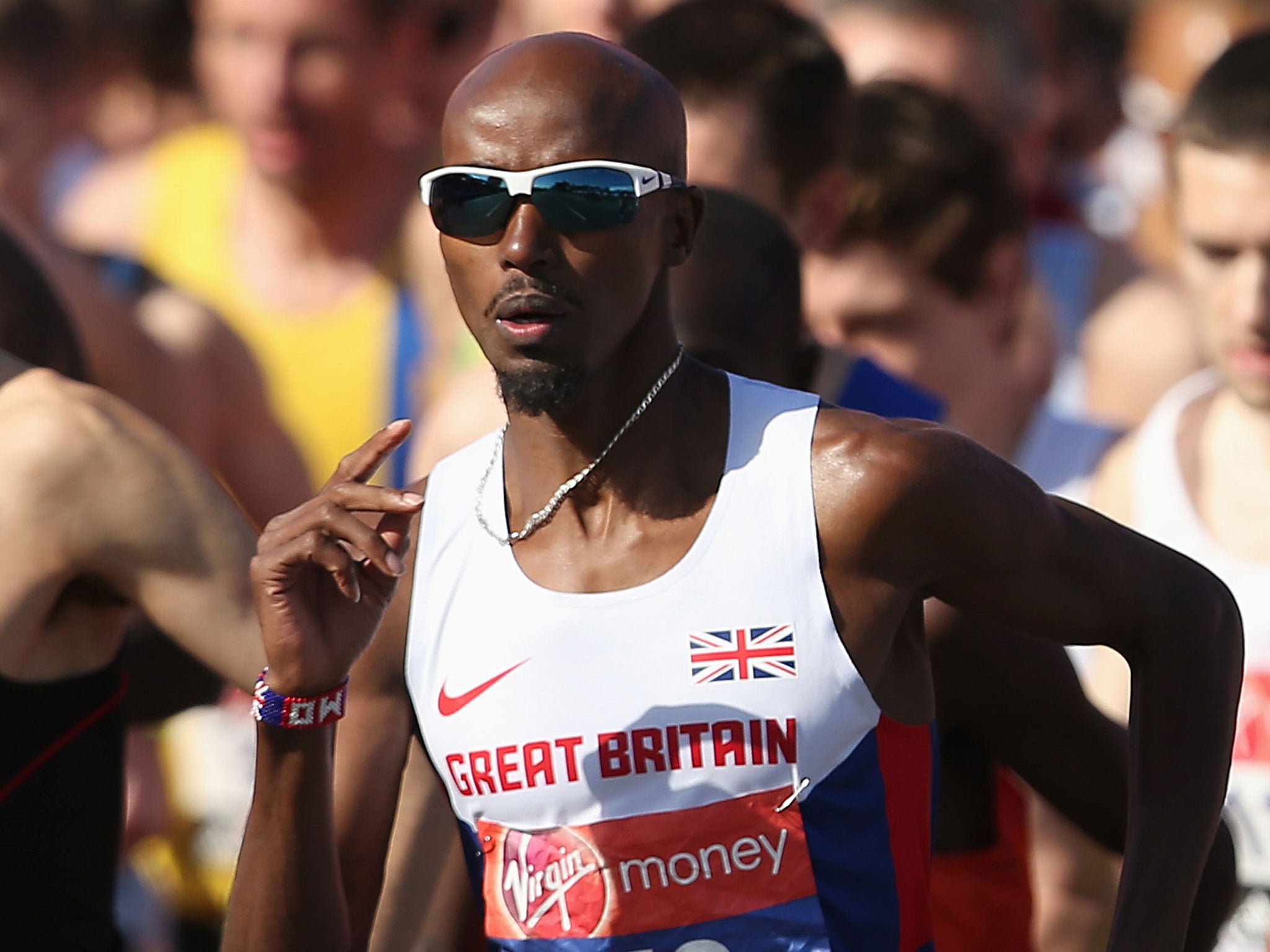London Marathon results 2014: Mo Farah finishes four minutes behind winner Wilson Kipsang in eighth place and admits 'I have gone straight in at the deep end'
Double Olympic gold medallist moved up to the 26.2-mile distance for the first time

Your support helps us to tell the story
From reproductive rights to climate change to Big Tech, The Independent is on the ground when the story is developing. Whether it's investigating the financials of Elon Musk's pro-Trump PAC or producing our latest documentary, 'The A Word', which shines a light on the American women fighting for reproductive rights, we know how important it is to parse out the facts from the messaging.
At such a critical moment in US history, we need reporters on the ground. Your donation allows us to keep sending journalists to speak to both sides of the story.
The Independent is trusted by Americans across the entire political spectrum. And unlike many other quality news outlets, we choose not to lock Americans out of our reporting and analysis with paywalls. We believe quality journalism should be available to everyone, paid for by those who can afford it.
Your support makes all the difference.It was a step into the unknown for Mo Farah, the ultimate experiment for Britain’s greatest runner.
But on the same streets where he first competed as a 14-year-old the experiment failed, as he fell short in the most modest of his ambitions in the London Marathon on Sunday, namely Steve Jones’ 29-year-old British record, set at the Chicago Marathon.
In the build-up, the BBC had been counting down to “Mo time” Sadly, it was more a case of slow Mo as he finished more than a minute shy of Jones’ time. The fact that Farah was the fastest Englishman ever to complete the 26.2-mile course in a time of 2hr 8min 21sec was scant consolation.
There was no shame in his eighth place, just the realisation that he was not quite up to the task on debut, by his own admission the most gargantuan he had ever undertaken in his illustrious career.
Instead, the day belonged to Wilson Kipsang, the Kenyan world record holder, who had arrived in London 24 hours late after having his passport stolen, but was still the first man across the line.
Having broken away from an illustrious leading group with fellow Kenyan Stanley Biwott at 20 miles, he picked his time to strike as Big Ben sounded noon, pulling away for his second London victory, with Biwott second and the defending champion Tsegaye Kebede third. Kipsang finished in a new course record time of 2hr 4min 29sec.
To Farah’s credit, he did little to hide his disappointment and shrugged it off as “a bad day at the office”. The suggestion now is that his marathon career is over before it has barely begun. Yet even in the aftermath the double Olympic champion insisted: “I’m not going to finish it like this. I will be back and it’s a matter of experience and learning.”
Right from the start Farah never troubled the likes of Kipsang, although that was no great cause for alarm. The intention had never been to go with the initial world record tempo set by the pacemaker Haile Gebrselassie, but it was the speed with which Farah dropped off the pace that was a cause for concern.
His intention had been to be 30 seconds off the pace at halfway but he was that much adrift after a little more than three miles. It looked, however, as though the front-runners in the best marathon field ever assembled had gone off at a suicidal pace and Farah was able to cut the deficit, aided by a very vocal crowd which he milked to good effect.
But when he needed the most help, he found himself isolated, his cause not helped by missing one of the drinks stations just after halfway. From there, he slipped off the pace, the chance of catching the leaders an impossibility and the hope of surpassing Jones’ time steadily faded.
There will be those who suggest he was wrong to make the move to the road in 2014, but he had very little to lose with no Olympics or World Championships in the offing. And he refuted suggestions he might have opted for an easier, less high-profile debut like Paris, as his track rival Kenenisa Bekele had done with success a week earlier.
“This is my city,” said Farah. “It would be wrong to do any other marathon. The field was tough, it’s the strongest field ever put together by the London Marathon. I have gone straight in at the deep end.”
The women’s race was a battle of the Kiplagats as Edna outsprinted compatriot Florence up the Mall to win in a time of 2hr 20min 21sec. The race had been a three-way battle with marathon debutant Tirunesh Dibaba, but she finished third after botching her final drink collection.
There was not to be a record seventh win for David Weir in the wheelchair race, the Londoner missing out to Swiss rival Marcel Hug in a sprint finish. Hug’s time of 1hr 32min 41sec was just one second faster than Weir’s. Tatyana McFadden defended her marathon wheelchair title with victory in 1hr 45min 12sec.
But Farah was still the talking point. This had been his Everest, but the marathon remains a climb too far. The Kenyan-Ethiopian hegemony over this race has now stretched to 12 years, the lack of a male British winner to 21 years.
Join our commenting forum
Join thought-provoking conversations, follow other Independent readers and see their replies
Comments